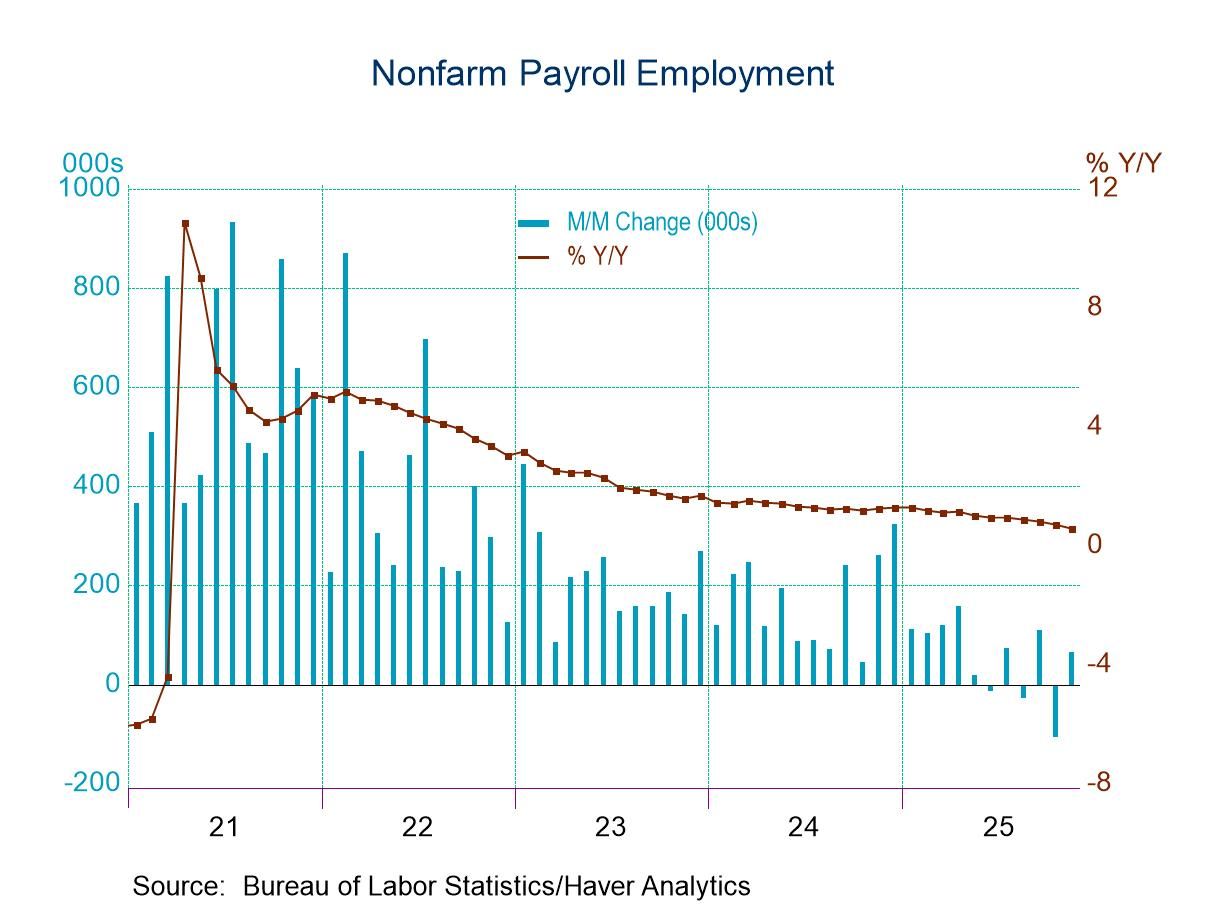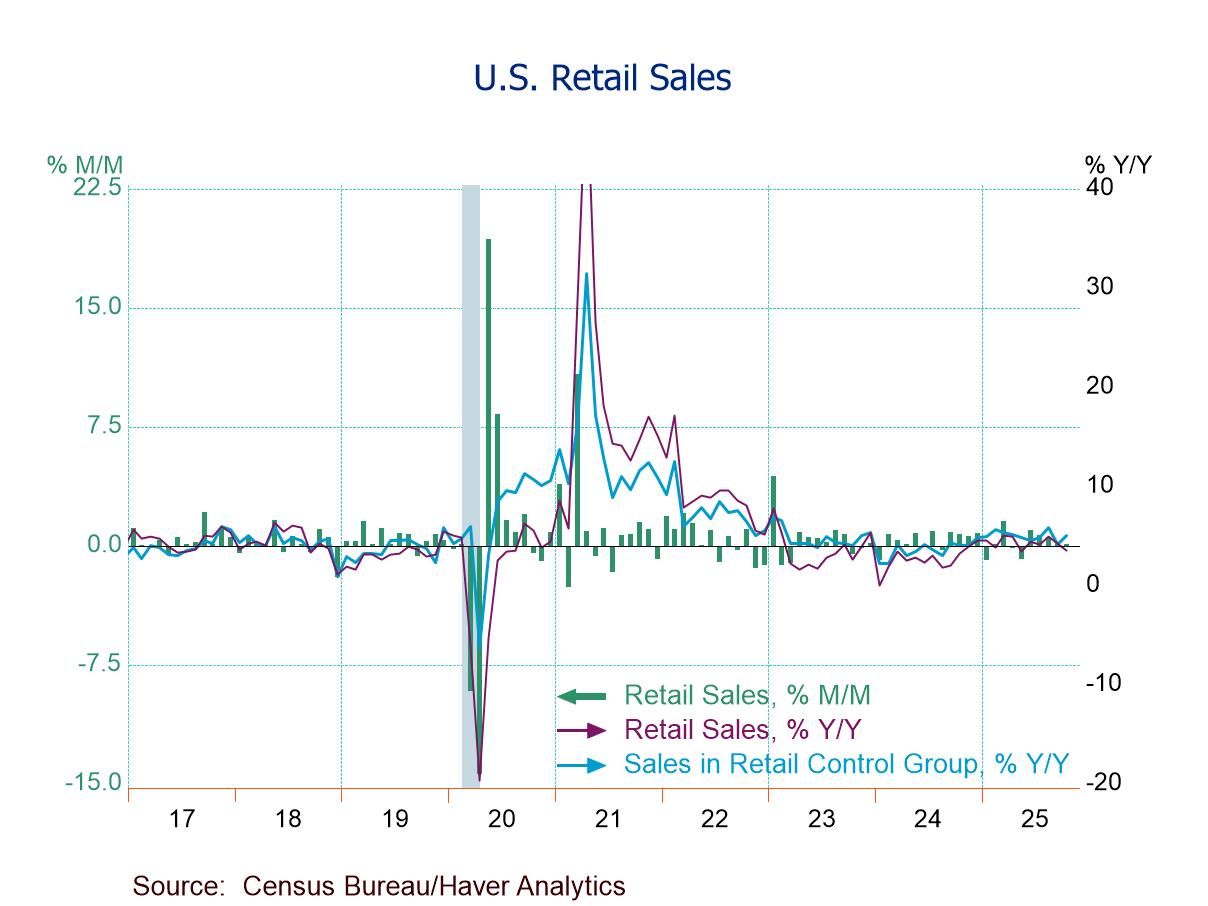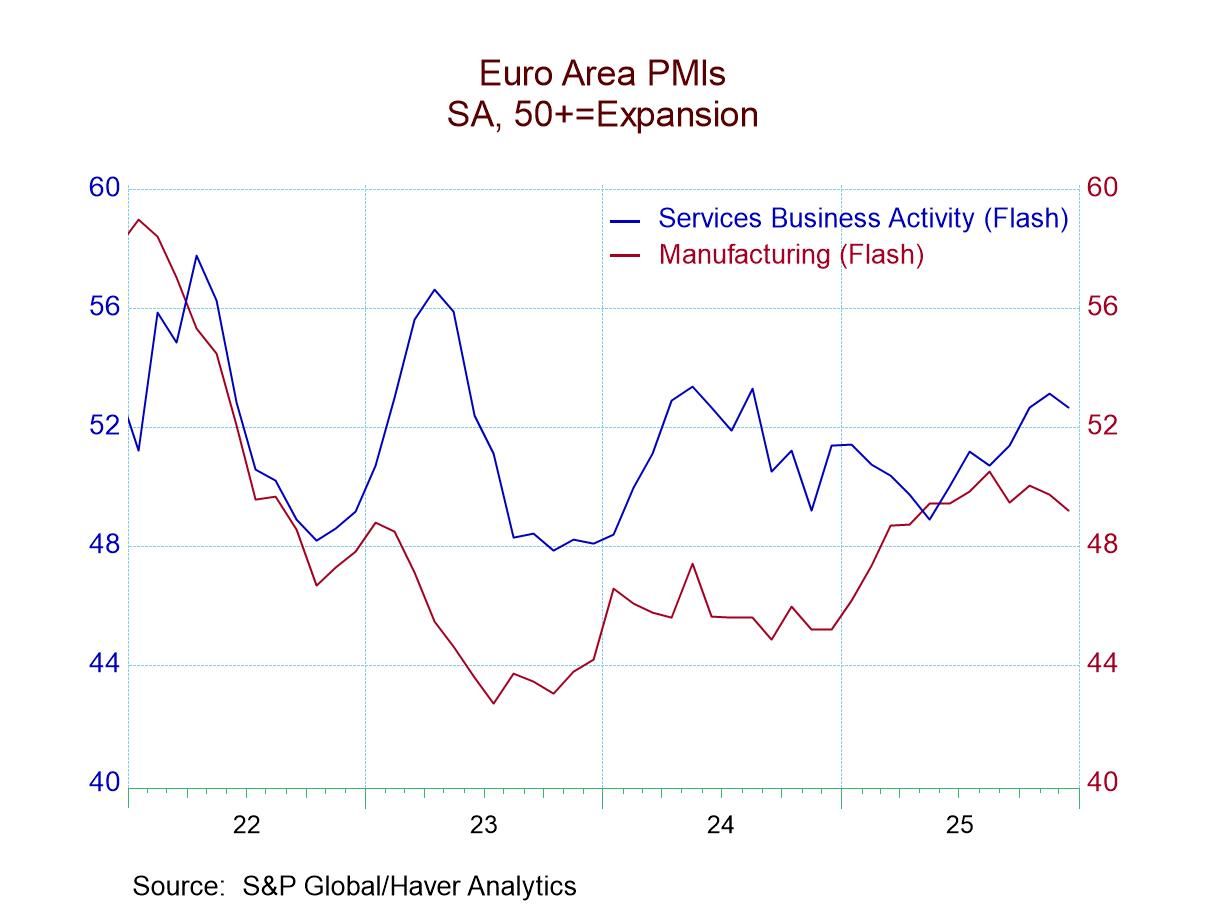 Global| Mar 22 2021
Global| Mar 22 2021Confidence in Belgium Continues to Move Up
Summary
The National Bank of Belgium consumer survey shows an improvement in confidence in March with its consumer index improving to -4 from -9 in February. The one-month, three-month and 12-month improvements are all about the same in [...]
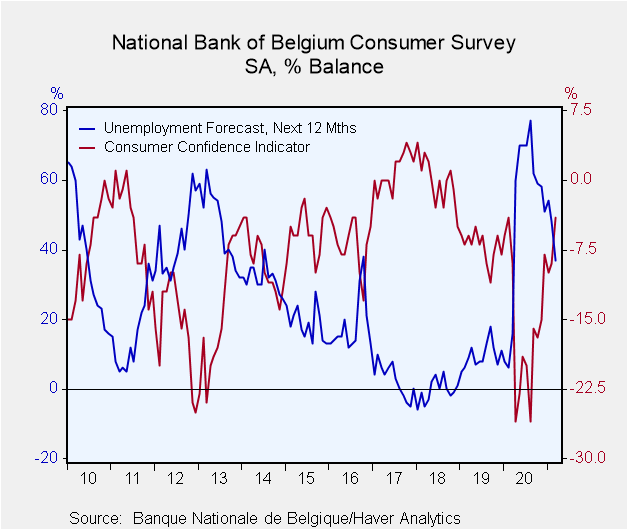 The National Bank of Belgium consumer survey shows an improvement in confidence in March with its consumer index improving to -4 from -9 in February. The one-month, three-month and 12-month improvements are all about the same in simple difference terms as what improvement there is has all come this month on those various timeline comparisons. Compared to January 2020 before Covid-19 set in, consumer confidence is stronger in March at -4 compared to -6 in early-2020, a net gain of 2 points. The topical -4 reading has a 66.4 percentile standing, placing it at the border line of the top one third of values the index has experienced since 1991. A two-thirds standing in this historic queue of data is fine, a sort of Goldilocks position: not too strong, not to weak, well above its median (median occurs at a raking of 50%) and reasonably elevated above that mark.
The National Bank of Belgium consumer survey shows an improvement in confidence in March with its consumer index improving to -4 from -9 in February. The one-month, three-month and 12-month improvements are all about the same in simple difference terms as what improvement there is has all come this month on those various timeline comparisons. Compared to January 2020 before Covid-19 set in, consumer confidence is stronger in March at -4 compared to -6 in early-2020, a net gain of 2 points. The topical -4 reading has a 66.4 percentile standing, placing it at the border line of the top one third of values the index has experienced since 1991. A two-thirds standing in this historic queue of data is fine, a sort of Goldilocks position: not too strong, not to weak, well above its median (median occurs at a raking of 50%) and reasonably elevated above that mark.
The virus stalks Belgium as the EU rollout stumbles
However, all is not well in Belgium. And of course, that is a reference to the virus. Consumer confidence is making progress, but the virus has kicked up its heels again. Prime Minister Alexander De Croo says Belgium faces a few “crucial weeks” as the number of coronavirus cases has risen. In response, the government is going to pause its program of allowing a relaxation of restrictions. The number of new infections has risen by one third over the last seven days. Hospitalizations are up as well, a bit less sharply. Belgium is finding new infections at schools and in the workplace as the number of elderly getting the disease is dropping because of the vaccination program. As an EU member, Belgium is also caught up the problem the EU is having in securing enough vaccine to procced with its program the way it would like. The EU is being accused of threatening to restrict exports from the region. Meanwhile, the EU claims it is only trying to make sure that it gets delivered the vaccine it contracted for. There is a lot of double speak here and the main tension is the U.K. which is no longer an EU member and continues to have bad blood with the EU over any number of issues. The U.K. has done a better job of securing vaccine for its people. The EU is at least embarrassed that it is less vaccinated than the U.K. It wants to use the proportion vaccinated as metric to hold back vaccine shipments to the U.K. so it can catch up, although the EU tries not to put in in exactly those terms.
The guts of the survey are positive
The Belgian survey finds all household appraisals of the various categories above their respective median except the backward-looking evaluation of the economic situation in the previous 12 months (of course!) and the expected price trends for the next 12 months (42.9%).
The environment for making major household purchases (89.1%) and to achieve savings (89.9%) over the next 12 months are exceptionally strong. The overall economic situation for the next 12 months has an 80.4 percentile standing. The financial situation for the next 12 months is below those lofty levels of evaluation at a 66.9 percentile standing.
Compared to January 2020, four of five ‘next’ ratings are improved with only the price trend assessed as weaker today than in January 2020. The current situation appraisal is up by 10 points as well and the current period is considered favorable for savings.
All in all, these assessments look good. For the most part the response rankings are solid, the comparisons to a year ago are improved and the outlook is also good. The one fly in the ointment is that among the evaluations for the next 12-months two of five - the economic situation and the environment for making major household purchases have weakened on balance over three months. And then, of course, apart from the survey, there is the recent behavior of the virus. Belgium is in many ways is doing well. But as an EU member, it is getting a slow vaccine rollout and is showing signs of vulnerability as a contrast to clear signs of economic progress. When they conflict, the virus wins.
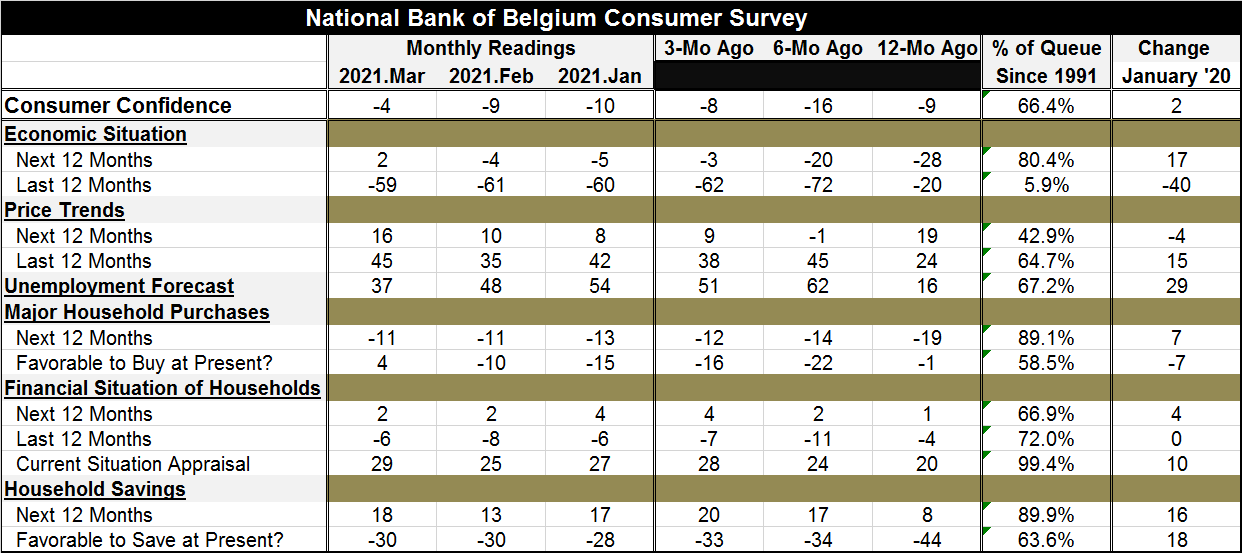
Robert Brusca
AuthorMore in Author Profile »Robert A. Brusca is Chief Economist of Fact and Opinion Economics, a consulting firm he founded in Manhattan. He has been an economist on Wall Street for over 25 years. He has visited central banking and large institutional clients in over 30 countries in his career as an economist. Mr. Brusca was a Divisional Research Chief at the Federal Reserve Bank of NY (Chief of the International Financial markets Division), a Fed Watcher at Irving Trust and Chief Economist at Nikko Securities International. He is widely quoted and appears in various media. Mr. Brusca holds an MA and Ph.D. in economics from Michigan State University and a BA in Economics from the University of Michigan. His research pursues his strong interests in non aligned policy economics as well as international economics. FAO Economics’ research targets investors to assist them in making better investment decisions in stocks, bonds and in a variety of international assets. The company does not manage money and has no conflicts in giving economic advice.




